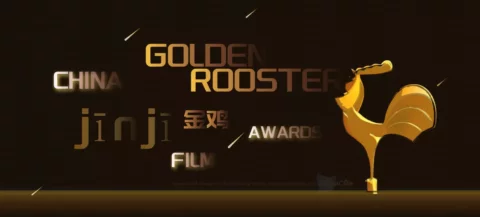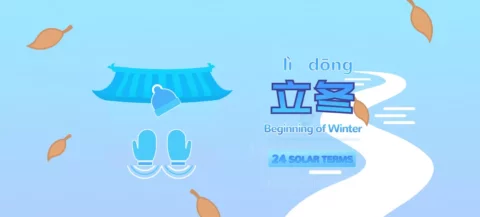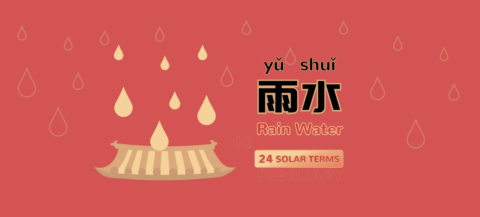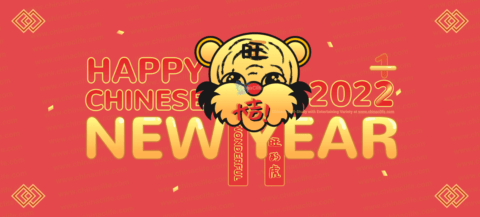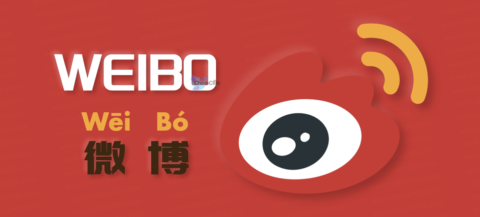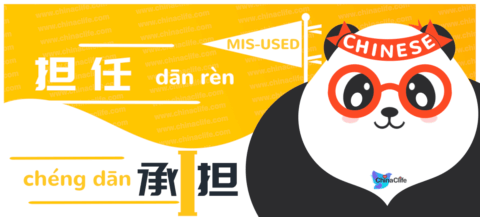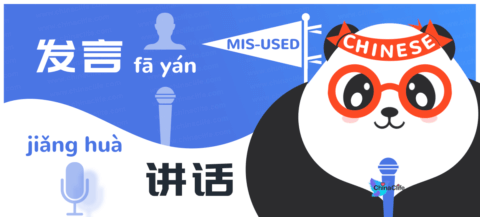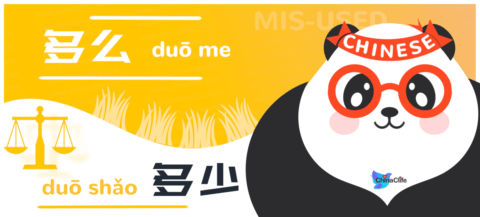Qixi Festival: The Most Acceptable Modern Chinese Valentine's Day And Young Females' Festival in August
七夕,最浪漫传奇的现代中国爱情节日
What's the Chinese Valentine's Day? Is there the Chinese Valentine's Day celebrated in China? As we know from the previous story, the day of May 20th is getting popular among young lovers due to the romantic numeral tricks in Chinese pronunciation. However, May 20th is not a traditional valentine's festival in China. The story below will introduce the Qixi festival, the most acceptable Chinese valentine's day, and also the traditional young females' festival in China.
Target Story Words
English Words:
Chinese Pinyin:
Standard Chinese:
Similar Chinese Words:
爱情节日 ài qíng jié rì The romantic day or festival.
Related Chinese Words:
七 夕 Qī xī The Qixi Festival in China, or known as Double Seven Festival.
乞巧节 Qǐ qiǎo jié Another Chinese name of Qixi Festival.
七巧节 Qī qiǎo jié Another Chinese name of Qixi Festival.
What and When Is Qixi Festival?
七夕节与日期
The Qixi Festival, written as "七夕节" in Simplified Chinese and shortened with "七夕" (qī xī), is one of the traditional festivals originating in China and also known as the "Double Seventh Festival".
节日“Qixi Festival”,中文写作“七夕节”,中国人简称“七夕”,是发源于中国的中国民间传统节日之一,也是人们熟知的“Double Seventh Festival”。
Although there is a Chinese number "七" (qī) within the name, the Qixi Festival doesn't take place in July but actually common in August. It's because that the Qixi Festival refers to the seventh night of the lunar seventh month based on the Chinese lunisolar calendar. The Qixi Festival in 2021 falls on August 14th. Click to check out more future days of the Qixi Festival.
虽然“七夕节”的名字中包含中文数字“七”,但它并非是发生在 7 月的节日。七夕节,实际上指的是中国农历的七月初七这天夜晚,通常落于每年阳历的 8 月。2021 年的七夕节,正好对应阳历 8 月 14 日这一天。点击此处可查看未来数年内七夕的具体日期。
What's Qixi Meaning in Chinese?
“七夕”的含义
In Chinese, the numeral character "七" indicates the "Double Seventh Day", a romantic one of the "Double ordinal-day" festivals to be well known in traditional Chinese culture. Coincidentally, the character "七" that has the same pronunciation as another character "妻" which means wife in Chinese, indicates that it's also a festival related to the females.
中文里的“七”字,在这里代表“七月七”,即中国传统文化中的被人熟知几个“重日”之一。而且,“七”与中文里的“妻”字同音,也暗示了七夕是与女性相关的节日。
With regard to the second character "夕" (xī), it generally means the sunset time in Chinese, roughly understood as night. So the full meaning of "七夕" is pointing to the seventh night of the seventh month based on the Chinese lunar calendar. It's not single for the character "夕" appearing in Chinese festivals. For example, the important Chinese celebrating day "除夕" refers to the night of the last day in a year.
“夕”字,在中文里指夜晚。七夕的含义正是指农历七月七日的夜晚。在中国,类似这样与夜晚相关的节日名还有“除夕”,指一年中最后一天的夜晚。
The Acceptable Modern Chinese Valentine's Day
七夕,现代版中国情人节
Besides the western Valentine's Day introduced into China, there are also several Chinese romantic days for celebrating by lovers and couples, such as the May 20th and the "Qixi Festival", the latter of more than 2000 years history in China.
在中国,除了大家熟知的西方情人节外,中国人也拥有不少带有浪漫色彩的爱情节日,比如与中文“我爱你”谐音的 5 月 20 日,又比如在中国已有 2000 多年历史的“七夕节”。
As one of the traditional Chinese festivals, Qixi has multiple cultural implications in China and Chinese culture.
七夕,是中国传统节日之一,在中国拥有多重的文化含义。
From its origin, the Qixi Festival rises in the star worship by the ancients. The ancient Chinese picked two unusual shiny stars which were separated by the milky way and named them individually with "牛郎星" (niú láng xīng), the Altair in the constellation Aquila and "织女星" (zhī nü xīng), the Vega in the constellation Lyra, to be accompanied with a romantic legendary story called "牛郎织女" (The Cowherd and Weaver Girl) for years.
从起源来看,七夕节源于中国古代对天上星宿的崇拜。古人将天空中天鹰座和天琴座下的两颗异常明亮的、却被一道银河隔开的星星分别命名为“牛郎星”和“织女星”,并赋予了“牛郎织女”的美丽爱情传说,在民间广泛流传。
According to the Chinese romantic legend, when it comes to the seventh day of the seventh month every year based on the Chinese lunar calendar, the ordinary man Niulang (Cowherd) and his wife Zhinü (Weaver Girl), the skillful fairy from the heaven world, are able to meet each other once a year on this day. And it's usually the night for people to observe stars and celebrate the day, so the festival of the Double-Seventh Day was given a meaningful Chinese name of "七夕节" and gradually developed into the most acceptable modern Chinese Valentine's day in modern China.
相传,每年中国农历七月初七这一天,牛郎织女会在天上的鹊桥相会。又因人们通常在夜晚观星、过节,所以这一天被称作“七夕节”,并逐渐演变成为被现代大众广泛认可的中国传统爱情节日。
Qixi, Also The Festival For Young Females
亦是年轻女子的节日
The Qixi Festival is also familiar with many other Chinese names varying from regions in China, such as the "Females' Festival", "Girls' Festival", "Qiqiao Festival", "Ingenuity-blessing Festival", "Qijie Festival", etc. All of these Chinese names listed here are obvious to indicate that it's the young females' festival.
七夕,又称“女节”、“女儿节”、“七巧节”、“乞巧节”、“七姐节”等众多名称,无一不表示它是与女子相关的节日。
"Zhinü" was in belief a clever and skillful fairy of the Heaven world who was deft at weaving and sewing. When the day of the Qixi Festival coma, young women and girls in ancient would like to kowtow to Zhinü in worship and sincerely blessed for skillful hands, with strong talents for weaving and sewing, and thereby the perfect and happy marriages.
在中国传说中,“织女”是天上心灵手巧的仙女,擅长织布和缝纫。在“七夕”这一天,古代年轻妇女和少女们虔诚地向织女星跪拜,祈求织女能赋予聪慧灵巧的双手,保佑自己成为心灵手巧的女子,从而获得美满幸福的姻缘。
Nowadays, such traditional Qixi customs continue to hold in many regions of China. People will make various Chinese food, fancy cakes & steamed buns, and carving fruits to share together, for their willing of ingenuity and happy life besides love.
在现代,这样类似的七夕传统和习俗仍在不少地区得以保留和延续着。人们选择在这一天制作各类中式“巧食”、分享“巧果”,表达对心灵手巧及幸福生活的不懈努力与追求。
Enjoy!
Questions & Additional
Have you got any tips from this bilingual Chinese story above?
Do you have any other questions or suggestions?
You are free to write it down in the "Comments" section below or in our groups.
Any thought from you is appreciated, valuable, and might help the rest of the residents on the planet. 😀
Additionally...
Did You Start Learning Chinese with Pinyin?
Continue to read our User-friendly Chinese-Pinyin version of this story
(Unlocked for Free Logged-in and Premium residents only).
Hope it Helps! : )
The Calendar of Qixi Festival
七夕节时间表
| 年份 (Nián fèn) Year |
节日名 (Jié rì míng) Festival |
日期 (Rì qī) Date |
|---|---|---|
| 2020年 (2020 Nián) In 2020 |
2020年七夕节 (Qī xī jié) Qixi/Double Seventh Festival 2020 |
8月25日 星期二 (8 yuè 25 rì xīng qī 2) Tuesday, August 25, 2020 |
| 2021年 (2021 Nián) In 2021 |
2021年七夕节 (Qī xī jié) Qixi/Double Seventh Festival 2021 |
8月14日 星期六 (8 yuè 14 rì xīng qī 6) Saturday, August 14, 2021 |
| 2022年 (2022 Nián) In 2022 |
2022年七夕节 (Qī xī jié) Qixi/Double Seventh Festival 2022 |
8月4日 星期四 (8 yuè 4 rì xīng qī 4) Thursday, August 4, 2022 |
| 2023年 (2023 Nián) In 2023 |
2023年七夕节 (Qī xī jié) Qixi/Double Seventh Festival 2023 |
8月22日 星期二 (8 yuè 22 rì xīng qī 2) Tuesday, August 22, 2023 |
| 2024年 (2024 Nián) In 2024 |
2024年七夕节 (Qī xī jié) Qixi/Double Seventh Festival 2024 |
8月10日 星期四 (8 yuè 10 rì xīng qī 6) Saturday, August 10, 2024 |
| 2025年 (2025 Nián) In 2025 |
2025年七夕节 (Qī xī jié) Qixi/Double Seventh Festival 2025 |
8月29日 星期五 (8 yuè 29 rì xīng qī 5) Friday, August 29, 2022 |








